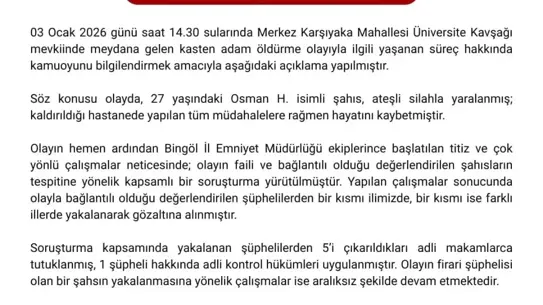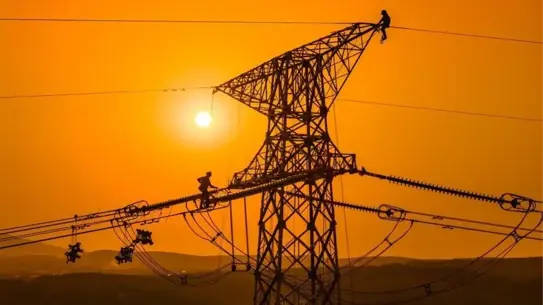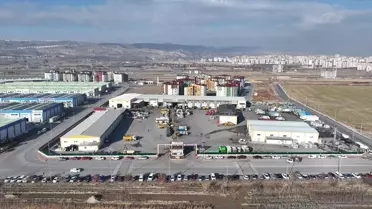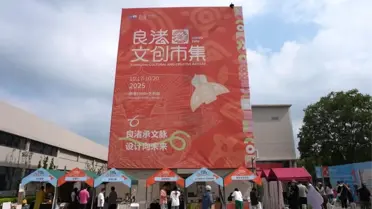•
Van’da 6 Göçmen Kaçakçısı Yakalandı: Polis Operasyonu Detayları
|
•
Crans-Montana Bar Yangınında 40 Kayıp: Uluslararası Yankı
|
•
Hatay’da Öğrenci Servisi Kontrolünü Kaybederek Zeytinli’ye Çarptı: 5 Kişi Yaralandı
|
•
Eskişehir’de Hızlı Sürüş Yarışı 3 Yaya Hayatını Aldı, Sürücü Tutuklandı
|
•
Düzce'de Geniş Operasyon: 1.092 Kişi Tutuklandı, Çok Sayıda Silah Ele Geçirildi
•
Van’da 6 Göçmen Kaçakçısı Yakalandı: Polis Operasyonu Detayları
|
•
Crans-Montana Bar Yangınında 40 Kayıp: Uluslararası Yankı
|
•
Hatay’da Öğrenci Servisi Kontrolünü Kaybederek Zeytinli’ye Çarptı: 5 Kişi Yaralandı
|
•
Eskişehir’de Hızlı Sürüş Yarışı 3 Yaya Hayatını Aldı, Sürücü Tutuklandı
|
•
Düzce'de Geniş Operasyon: 1.092 Kişi Tutuklandı, Çok Sayıda Silah Ele Geçirildi
Reklam Alanı

Kayseri'ye 12 Yeni Ambulans Kazandırıldı: Acil Sağlık Filosu Güçleniyor

Erzurum'un Lezzet Mirasını Dünya ile Buluşturacak Yeni Gastronomi Derneği Kuruldu

İnegöl'de Kayalıkta Mahsur Kalan Av Köpekleri 7 Saatte Kurtarıldı

Diyarbakır’da 18 Yıllık Acı Anma: 7 Şehit Anısına Tören Gerçekleşti

İdris Gökmen, Sevdiği Kadını Boğarak Öldürdüğünü ve Yakıtla Yok Ettiğini İtiraf Etti

Gemerek’te Soğuk Günlerde Sokak Hayvanları İçin Kış Besleme Kampanyası Başladı

İstanbul’da Ani Hava Değişimi: Perşembe Şiddetli Fırtına, Cuma Kar Yağışı Bekleniyor

Aile ve Mahremiyet: Milli Güvenliğin Kırmızı Çizgisi

Galatasaray'da Yusuf Demir ile İletişim Kesildi: Ayrılık Süreci Sertleşti

Mickey Rourke'ın 59.100 Dolarlık Kira Borcu ve Yardım Kampanyası
VİDEO
Tüm Videolar
Video
Maduro'nun Generallerinin Şok Görüntüsü Sosyal Medyada Gündem Oldu

Video
İstanbul’da Ani Hava Değişimi: Perşembe Şiddetli Fırtına, Cuma Kar Yağışı Bekleniyor

Video
Jayden Oosterwolde'in Fenerbahçe'den Ayrılık Planları ve Avrupa Kulüpleriyle Görüşmeleri

Video
Galatasaray'da Yusuf Demir ile İletişim Kesildi: Ayrılık Süreci Sertleşti

Video
Venezuela'nın Önde Gelen Yetkilisi Washington'ta Gizli Görüşmeler Yaptı: Maduro'ya Karşı İhanet İddiaları

Video
İran’ın Üst Düzey Yetkilisi Hamaney’in Rusya Kaçış Senaryosu Ortaya Çıktı

Video
Yalova’da DEAŞ’a Yönelik Operasyonlarda Tutuklamalar 56’ya Ulaştı

Video
Venezuela Lideri Maduro’nun Oğlu Nicolas Maduro Guerra’dan Şok İddia: “İhanetçiler Açığa Çıkacak”

Video
Esenler'de Bir Aylık Bebek Otobüs Durağına Bırakıldı: Anne ve Anneanne Gözaltına Alındı

Video
Fatih Tekke'den Okan Buruk'a Şok Açıklama: "Kilo Aldım"

Van’da 6 Göçmen Kaçakçısı Yakalandı: Polis Operasyonu Detayları

Düzce'de Geniş Operasyon: 1.092 Kişi Tutuklandı, Çok Sayıda Silah Ele Geçirildi

Edirne Hastanesinde Ruhsatsız Tabanca ve Mermi Ele Geçirildi

Keşan’da Polis Operasyonu: Uyuşturucu ve Ruhsatsız Av Tüfeği Ele Geçirildi

Van’da Polis 13 Kilo Metamfetamin Ele Geçirdi: 2 Şüpheli Tutuklandı

Samsun Tekkeköy'de Durdurulan Araçta 3 Ruhsatsız Tabanca Ele Geçirildi

Bingöl’de Şok Cinayet: 6 Şüpheli Gözaltında, 5’i Tutuklandı

Maltepe’de Uzun Namlulu Silah ve Mühimmat Ele Geçirildi

Akçakale Sınırında Kamyonla Gelen 51 Silah ve 41 Şarjör Ele Geçirildi

Akçakale Gümrük Kapısında 52 Uzun Namlulu Silah Ele Geçirildi

Kar Yağışı Schiphol’da 500 Uçuşu Felç Etti

Maduro'nun Generallerinin Şok Görüntüsü Sosyal Medyada Gündem Oldu

Venezuela'nın Önde Gelen Yetkilisi Washington'ta Gizli Görüşmeler Yaptı: Maduro'ya Karşı İhanet İddiaları

Fransa’da Doktorlar Sosyal Güvenlik Bütçesi Nedeniyle Greve Gitti

Mickey Rourke'ın 59.100 Dolarlık Kira Borcu ve Yardım Kampanyası

İran’ın Üst Düzey Yetkilisi Hamaney’in Rusya Kaçış Senaryosu Ortaya Çıktı

İran Lideri Hamaney'den Ekonomik Protestolara Destek: Talepler Meşru

Trump, Grönland'ı ABD'nin Ulusal Güvenlik Anahtarı Olarak Nitelendirdi

ABD'nin Venezuela Üzerindeki Hava Operasyonu: En Az 40 Ölü

Venezuela Lideri Maduro’nun Oğlu Nicolas Maduro Guerra’dan Şok İddia: “İhanetçiler Açığa Çıkacak”

Hatay’da Öğrenci Servisi Kontrolünü Kaybederek Zeytinli’ye Çarptı: 5 Kişi Yaralandı

ÇOMÜ Araştırmacılarından Çevre Dostu Doğal Dezenfektan Patenti

Aydın’da Minik Sporcular İçin Yeni Bir Adım: ‘Spora İlk Adım’ Projesi Başladı

Elazığ İtfaiyesi 2025’te 2.909 Olayla Şehri Güvence Altına Aldı

Kar Şartları Okulları Kapattı: Türkiye’nin Birçok İlinde Tatil Kararı

Aksaray’da Elektrikli Soba Kullanırken Elektrik Akımına Yakalanan Üniversite Öğrencisi Hayatını Kaybetti

Berlin'de Elektrik Kesintisi Okulları 4 Gün Kapattı: Sebepler ve Sonuçlar

Berlin’de Büyük Elektrik Kesintisi: 4 Gün Boyunca Okullar Kapandı

Konya Bilim Merkezi 2025’te Rekor Ziyaretçi Sayısına Ulaştı

İstanbul Metro Kazası: Üniversite Öğrencisi Berkay Uyar'ın Son Yolculuğu Samsun'da Duygusal Bir Törenle Gerçekleşti
Memur-Sen Genel Başkanı Yalçın'dan Kamu Görevlilerine Seyyanen Zam ve Reform Çağrısı

Beyşehir'de Gıda Denetimi Sonrası 25 İşletmeye Toplam 1.367.000 TL Ceza Kesildi

Bilecik'te Berber Ücretlerine Yeni Zam: Şekilli Sakal Tıraşı 180 TL

Kredi Kartıyla Dijital Bahşiş: TURYİD’in Yeni Modeli ve %10 Vergi Teklifi

Yeni Yılda Öğretmen ve Vaiz Maaşları: Enflasyon ve Zam Oranları Karşılaştırması

Vahit Hamdi Öz, Akseki Esnaf Odası Başkanlığına Aday Oldu

Yıldırım’da Belediye Başkanı Yılmaz, Kapalı Pazar Esnafıyla Kahvaltı Görüşmesi Gerçekleştirdi

Mickey Rourke'ın 59.100 Dolarlık Kira Borcu ve Yardım Kampanyası

Kocasinan Belediyesi Atölyeleriyle 32 Milyon Lira Tasarruf Sağladı

Kamu‑Sen, Memurlara Ek Zam ve Refah Payı Talebinde Bulundu
Memur-Sen Genel Başkanı Yalçın'dan Kamu Görevlilerine Seyyanen Zam ve Reform Çağrısı

Beyşehir'de Gıda Denetimi Sonrası 25 İşletmeye Toplam 1.367.000 TL Ceza Kesildi

Bilecik'te Berber Ücretlerine Yeni Zam: Şekilli Sakal Tıraşı 180 TL

Kredi Kartıyla Dijital Bahşiş: TURYİD’in Yeni Modeli ve %10 Vergi Teklifi

Yeni Yılda Öğretmen ve Vaiz Maaşları: Enflasyon ve Zam Oranları Karşılaştırması

Vahit Hamdi Öz, Akseki Esnaf Odası Başkanlığına Aday Oldu

Sinop Esnaf Kredi Kooperatifinden Faiz Oranında Önemli İndirim

Van’da 6.800 Yeni Konut İçin Kura Çekimi Gerçekleşti

Karabük Belediyesi'nden Ölçü‑Tartı Aletleri Muayene Süreci Başladı

Ali Karahan, Türkeli Esnaf Odası'nda 317 Oyla Başkanlığa Yeniden Seçildi

Erdoğan'dan F-35 Geri Dönüşü: NATO Güvenliği ve Türkiye'nin İtibarı Üzerine Açıklamalar

İnegöl'de Kayalıkta Mahsur Kalan Av Köpekleri 7 Saatte Kurtarıldı

Diyarbakır’da 18 Yıllık Acı Anma: 7 Şehit Anısına Tören Gerçekleşti

İdris Gökmen, Sevdiği Kadını Boğarak Öldürdüğünü ve Yakıtla Yok Ettiğini İtiraf Etti

Avcılar’da Şiddetli Lodos Teknelere Zarar Verdi, Temizlik Çalışmaları Başladı

Gemerek’te Soğuk Günlerde Sokak Hayvanları İçin Kış Besleme Kampanyası Başladı

Maduro'nun Generallerinin Şok Görüntüsü Sosyal Medyada Gündem Oldu

Yargıtay, Boşanma Davalarında Affedilen Davranışların Kusurunu Kaldırmadığını Belirledi

Konya’da Farla Avlanan Kaçak Avcılara 81.604 TL’lik Para Cezası Kesildi

Tekirdağ’da Lodos Şiddeti Deniz Trafiğini Durma Noktasına Getiriyor

Yargıtay, Boşanma Davalarında Affedilen Davranışların Kusurunu Kaldırmadığını Belirledi

Aile Koruması ve Dijitalleşme: Yayman’dan Stratejik Uyarı

Sarıyer'de Mantar Toplarken Kaybolan Kadın Sağ Salim Kurtarıldı

Balıkesir'de Ölüm Olayı: Elif Kumal'ın Cenazesi Bursa'ya Taşındı

Adana’da Şerit Değiştirirken Kadın Motosikletli Aracına Çarpan Otomobil Kazası

Balıkesir'de Elif Kumal'ın Cesedi Bulundu: Ölüm Nedeni Soruşturma Altında

İmamın Namaz Pozu, Sosyal Medyada Tartışma Yarattı

Hülya Avşar, Tesettürlü Rolüyle İzleyicileri Büyülüyor

Balıkesir’de 8 Gün Sonra Kayıp Öğrencinin Cesedi Göl Kenarındaki Araçta Bulundu

İzmir Ekonomi Üniversitesi'nde Kız Öğrencileri Hedef Alan İnternet Sitesi Tepki Çekti

Erzurum'un Lezzet Mirasını Dünya ile Buluşturacak Yeni Gastronomi Derneği Kuruldu

Dengin Ceyhan'ın 'Echoes of Anatolia' Projesiyle Anadolu Müziği Dünya Sahnesinde

Harbin'de 37. Uluslararası Buz Heykel Yarışması Resmen Başladı

Xi’an’da Işıklarla Dolu Fener Festivali: Çin Yeni Yılı Coşkusu

Stuttgart'ta Telve Dergisi'nin 18. Sayısı Tanıtıldı

5. Uluslararası Genç Yazarlar Kurultayı Tamamlandı: 40 Yazar Yeni Ufuklara Yelken Açtı

Mardin'in Tarihi Sokakları Karla Büyülendi: 'Uzak Şehir' Çekimleri Buz Gibi Bir Atmosfer Kazandı

Yeşilgöz Gölü Karla Bembeyaz Bir Tabloya Dönüştü

Aşkale'den 20 Çocuk Palandöken'in Bembeyaz Kayak Pistinde Kızak Keyfi Yaşadı

Kabadüz’ün Çambaşı Kayak Merkezi Hafta Sonu Kalabalığıyla Coştu

Alişan’ın yeni fotoğrafı 'kalkık kaş' tartışması yarattı

Hülya Avşar, Tesettürlü Rolüyle İzleyicileri Büyülüyor

Hasan Can Kaya’nın En Büyük Pişmanlığı: Cannes Başrol Teklifi ve Erzurum Kararı

İbrahim Tatlıses, 73 Yaşında İzmir'de Yeni Bir Aşkı Duyurdu

Mehmet Ali Erbil ve Gülseren Ceylan Boşanma Planlarından Vazgeçti: Canlı Yayında Barış Açıklaması

Gülben Ergen Tartışması Magazin Bahane’de: Siyaset ve Magazin Çatışması

Elazığ’da Kardan Adamın Başına Şaka: Kafası Hızla Çalındı

Beyazıt Öztürk'ün “Beyaz” Programı Joker Mesajıyla 4 Ocak’ta Kanal D’de

Settar Tanrıöğen: Beyin Kanamasıyla Mücadele Ederken Çektiği Zorlu Süreç

Filiz Çekil’in İnegöl Şubesinde Renkli Açılış ve Rus Mankenlerin Yeni Koleksiyonu

Hülya Avşar, Tesettürlü Rolüyle İzleyicileri Büyülüyor

Antep İşi Nakışı, Modern Tasarımlarla Yeniden Canlanıyor

Filiz Çekil’in İnegöl Şubesinde Renkli Açılış ve Rus Mankenlerin Yeni Koleksiyonu

Demet Özdemir'in Cannes Kırmızı Halı Şıklığı ve 7.385 Euro'luk Ralph Lauren Kombini

Mango Türkiye'de Kullanıcı Verilerini Kaybetti: Telefon ve E‑posta Bilgileri Çalındı

Hangzhou’da Liangzhu Kültür ve Yaratıcılık Pazarı Kapılarını Açtı

Zeki Triko'nun Efsanevi Kurucusu Ahmet Zeki Başeskioğlu 95 Yaşında Hayatını Kaybetti

LC Waikiki’nin Marka Stratejisini Şekillendirecek Yeni CBO: İsmail Seyis

Dülük Antik Kenti'nde Zamansız Moda Defilesi: Tarih ve Sanatla Buluşma

Dolikhe Antik Kenti'nde Genç Modanın Parlak Yüzü: Su Atacan Podyuma Çıktı

Düzce'de 2025 Trafik Denetiminde 133 Bin Sürücüye Ceza ve 6 Bin Araç Men Edildi

Eskişehir’de Hızlı Sürüş Yarışı 3 Yaya Hayatını Aldı, Sürücü Tutuklandı

Uşak'ta Sürücü Kontrolü Kaybetti, Otomobil Bahçeye Devrildi

Gölbaşı'nda Kaygan Yol Koşulları Nedeniyle Otomobil Çarpması: 1 Yaralı

Uşak'ta Kontrol Kaybı: Araç Bahçeye Devrildi, Sürücü Yaralı

Erzurum Pasinler'de Şarampole Devrilen Otomobil Kazası: 1 Ölü, 4 Yaralı

Kars'ta Soğuktan Korunmak İçin Araç Altına Yanan Ateş Kontrolden Çıktı

Bilecik'te Kontrol Kaybı Sonucu Araç Takla Attı, Sürücü Hastaneye Sevk Edildi

Kayseri Melikgazi’de Zincirleme Trafik Kazaları ve Elektrik Kesintileri

Aksaray’da Kontrolden Çıkan Araç Takla Atarak 3 Yaralı

Van’da 6 Göçmen Kaçakçısı Yakalandı: Polis Operasyonu Detayları
Fransa Mahkemesi Brigitte Macron'a Yönelik Sahte Haber Suçlamalarını Yaptırdı

Erdoğan'dan F-35 Geri Dönüşü: NATO Güvenliği ve Türkiye'nin İtibarı Üzerine Açıklamalar

Keşan’da Polis Operasyonu: Uyuşturucu ve Ruhsatsız Av Tüfeği Ele Geçirildi

Samsun Tekkeköy'de Durdurulan Araçta 3 Ruhsatsız Tabanca Ele Geçirildi

Van’da Gümrük Kaçağı Operasyonu: Sahte Pasaport ve Kaçak Malzemeler Ele Geçirildi

Aile ve Mahremiyet: Milli Güvenliğin Kırmızı Çizgisi

Aile Koruması ve Dijitalleşme: Yayman’dan Stratejik Uyarı

Venezuela'nın Önde Gelen Yetkilisi Washington'ta Gizli Görüşmeler Yaptı: Maduro'ya Karşı İhanet İddiaları

Eskişehir'de 7 Yıllık Hapis Cezalı Kaçak Mahkum Yakalandı

Crans-Montana Bar Yangınında 40 Kayıp: Uluslararası Yankı

Hatay’da Öğrenci Servisi Kontrolünü Kaybederek Zeytinli’ye Çarptı: 5 Kişi Yaralandı

Kayseri'ye 12 Yeni Ambulans Kazandırıldı: Acil Sağlık Filosu Güçleniyor

Gölbaşı'nda Kar Temizlerken Düşen Vatandaş Hastaneye Kaldırıldı

Fransa’da Doktorlar Sosyal Güvenlik Bütçesi Nedeniyle Greve Gitti

Kırklareli'de Gıda Denetimleri Aralıksız Sürüyor

AFAD’dan Zorlu Koşullarda Hızlı Müdahale: Kastamonu’da Hastayı Paletli Araçla Hastaneye Ulaştırdı

Sarıyer'de Mantar Toplarken Kaybolan Kadın Sağ Salim Kurtarıldı

Bedri Usta’nın Sahibi Hastane Odasından Paylaştı: Sağlık Durumu ve Soruşturma Detayları

Malatya’da Minibüs Çarpması Sonrası Yaşlı Sürücü 3,5 Ay Sonra Hayatını Kaybetti

Crans-Montana Bar Yangınında 40 Kayıp: Uluslararası Yankı

Eskişehir’de Hızlı Sürüş Yarışı 3 Yaya Hayatını Aldı, Sürücü Tutuklandı

Balıkesir Gömeç’te Silahlı Saldırı: 2 Kişi Hayatını Kaybetti

Van’da 43 Şüpheli Tutuklandı: Geniş Operasyon ve Ele Geçirilen Silahlar

Konya’da Hafif Ticari Araç Kontrolünü Kaybederek Dönerciye Çarptı

İstanbul’da Ani Hava Değişimi: Perşembe Şiddetli Fırtına, Cuma Kar Yağışı Bekleniyor

Konyaspor, Arif Boşluk’u Kiraladı: Sezonluk Çözüm Mü?

Galatasaray'da Yusuf Demir ile İletişim Kesildi: Ayrılık Süreci Sertleşti

Eskişehir'de Şok Edici Cinayet: Zanlı Boğma ve İki Gün Süren Yakma İşlemini Mahkemede Açıklıyor

Elazığ’da Silahlı Saldırının Şok Edici Detayları: Bir Kişi Bacağından Yaralandı

Burhaniye'de Briç Şampiyonası Coşkusu: 36 Sporcu Rekor Katılım Sağladı

Köyceğiz Voleybol Turnuvası Çeyrek Finallerinde Heyecan Dorukta

Jayden Oosterwolde'in Fenerbahçe'den Ayrılık Planları ve Avrupa Kulüpleriyle Görüşmeleri

Karadeniz Takımları Samet Akaydın İçin Transfer Yarışına Girdi

Konyaspor, Arif Boşluk’u Kiraladı: Sezonluk Çözüm Mü?

Galatasaray'da Yusuf Demir ile İletişim Kesildi: Ayrılık Süreci Sertleşti

Aydın’da Minik Sporcular İçin Yeni Bir Adım: ‘Spora İlk Adım’ Projesi Başladı

Ordu’da Judo Gençler Türkiye Birinciliği Heyecanı Başladı

Manchester United’da Teknik Direktör Şoku: Ruben Amorim Görevden Ayrıldı

Gaziantep FK, Antalya'da Devre Arası Antrenman Kampını Sürdürüyor

ÇOMÜ Araştırmacılarından Çevre Dostu Doğal Dezenfektan Patenti

Dicle Elektrik, Güneydoğu’da 2,2 Milyon Aboneye Kesintisiz Enerji Sağladı

Kırıkkale'de Drone ile Trafik Denetiminde Yeni Dönem: 3.965 TL'lik Ceza Kesildi

İzmir Ekonomi Üniversitesi'nde Kız Öğrencileri Hedef Alan İnternet Sitesi Tepki Çekti

Kırklareli'de Durgun Sular Üzerinde Askeri Geçiş Eğitimini Başarıyla Tamamladı

BYD, 2025'te Yeni Enerjili Araç Satışlarıyla Küresel Pazarın Zirvesine Çıktı

Güdül'de Gizemli Işıklar: İki Arkadaşın UFO Görüntüleri

Milli Elektrikli Hızlı Tren Projesi 2026’da Test Aşamasına Giriyor

ÇELİKKUBBE'de Gelişmiş Siper Sistemi Teslimatı Başladı

Starlink, Venezuela'ya 1 Ay Ücretsiz İnternet Sağlayacak: Elon Musk'tan Yeni Girişim

Erzurum'un Lezzet Mirasını Dünya ile Buluşturacak Yeni Gastronomi Derneği Kuruldu

Murat Cahid Cıngı, Erciyes Kayak Merkezi'nin Turizm Potansiyelini Vurguladı

Tekirdağ’da TEK Kış Fest 4. Hafta: Kış Rüzgarları Yerel Ekonomiyi Canlandırıyor

Kayseri'de Kış Turizmi Potansiyeli: Erciyes, Avusturya'dan Daha Büyük Bir Pazar Sunuyor

Xi’an’da Işıklarla Dolu Fener Festivali: Çin Yeni Yılı Coşkusu

Mısır Turizminde 2025 Rekoru: 19 Milyon Ziyaretçi

Bozcaada Açıklarında Ham Petrol Tankeri Karaya Oturdu, Çevre ve Personel Güvende

Bozcaada Açıklarında Karaya Oturan Oman Bayraklı QENDIL Tankerinin Hikayesi

Bodrum’da Şiddetli Rüzgar Yelkenliyi Sürükledi, Tekne Yan Yattı

Bolu Tabiat Parkları 2025’te Rekor Ziyaretçi Sayısına Ulaştı

İstanbul’da Ani Hava Değişimi: Perşembe Şiddetli Fırtına, Cuma Kar Yağışı Bekleniyor

Aile Koruması ve Dijitalleşme: Yayman’dan Stratejik Uyarı

Kar Şartları Okulları Kapattı: Türkiye’nin Birçok İlinde Tatil Kararı

Düzce'de 26 Yaşındaki Genç Sokakta Silahla Kendini Yakarak Hayatını Kaybetti

İmamın Namaz Pozu, Sosyal Medyada Tartışma Yarattı

Berber Ücretlerinde Şok Artış: Müşterileri Nasıl Etkileyecek?

Güllü'nün Oğlu Tuğberk Yağız Gülter'den “Bitti” Açıklaması ve Tepkiler

Miami'de Türk Güzellik Salonu, Evsiz Adamı Yeniden Hayata Döndürdü

Sinop’ta Unutulmaz Anlar: Yaban Domuzu Kucağa Alındı

Psilosibin Araştırmaları: Depresyonda Yeni Bir Tedavi Seçeneği mi?

Van’da 6 Göçmen Kaçakçısı Yakalandı: Polis Operasyonu Detayları

Düzce'de 2025 Trafik Denetiminde 133 Bin Sürücüye Ceza ve 6 Bin Araç Men Edildi

Crans-Montana Bar Yangınında 40 Kayıp: Uluslararası Yankı

Hatay’da Öğrenci Servisi Kontrolünü Kaybederek Zeytinli’ye Çarptı: 5 Kişi Yaralandı

Düzce'de Geniş Operasyon: 1.092 Kişi Tutuklandı, Çok Sayıda Silah Ele Geçirildi

Kayseri'ye 12 Yeni Ambulans Kazandırıldı: Acil Sağlık Filosu Güçleniyor

Uşak'ta Sürücü Kontrolü Kaybetti, Otomobil Bahçeye Devrildi

İnegöl'de Kayalıkta Mahsur Kalan Av Köpekleri 7 Saatte Kurtarıldı

Diyarbakır’da 18 Yıllık Acı Anma: 7 Şehit Anısına Tören Gerçekleşti



















